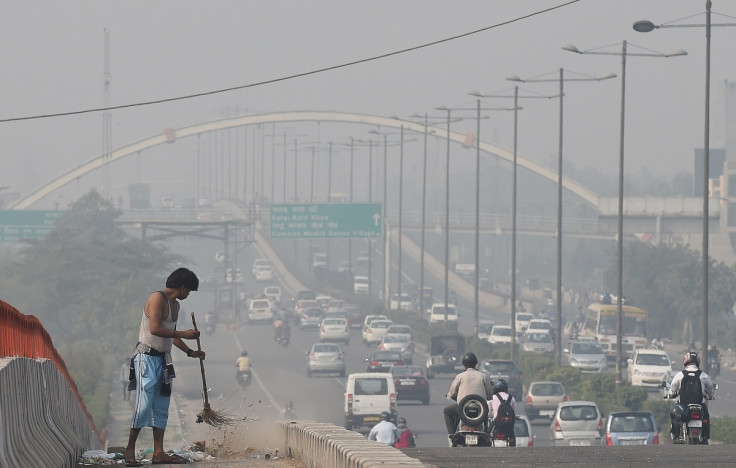Greenpeace: Air pollution levels in India are now higher than in China

India's air pollution levels official overtook China's in 2015, with the average particulate matter exposure exceeding Beijing for the first time in the 21<sup>st century. The information was revealed by Greenpeace on 22 February, who conducted an analysis of Nasa satellite data to reach their conclusion.
Greenpeace research noted that 23 out of 32 National Air Quality Index (NAQI) stations in India had recorded more than 70% exceedance of the national standards, which puts public health at risk. Furthermore, as many as 15 cities showed levels of air pollution that greatly exceeded the prescribed national standards.
Their report on NAQIs in India concluded that the most polluted cities in India often go months without a single day that meets the standard levels. Delhi, Ahmedabad, Varanasi, Patna, Agra and Kanpur were among those cities to be listed as having hazardous pollution levels.
A spokesperson for Greenpeace India said: "China's strong measures to curb pollution have contributed to the biggest year-on-year air quality improvement on record while in contrast, India's pollution levels continued a decade-long increase to reach the highest level on record."
Greenpeace researchers believe that the NAQI system will only be effective in protecting citizens from air pollution if efforts are made to communicate pollution levels through radio and TV channels, as well as through the internet. They urged government officials to provide "actionable instructions" on how people can protect themselves from the increasing pollution levels and recommended the use of air pollution masks, as well as the installation of air purifiers in schools, hospitals and other public buildings.
Nothing that China's air pollution levels have begun to drop while India's has steadily been rising, Greenpeace said that city-specific actions could not solve the national air pollution problem. Sunil Dahiya, energy campaigner for Greenpeace India, said that Beijing had attempted to approach the problem through city-specific ways for a number of years and had failed in reducing pollution levels.
Dahiya said: "Realising it as a regional issue impacting larger geographies of the country, the Chinese government decided on adopting a systematic, coordinated and time-bound action plan which ultimately resulted in massive decrease in pollution levels in the country."
As a result, Dahiya recommends that the government set up air pollution monitoring systems in all major urban areas and set a deadline for meeting the national air quality standards. He also said that it would be a good idea to make it mandatory for industries and thermal power plants to display "real time air emission data" on public platforms.
© Copyright IBTimes 2025. All rights reserved.





















